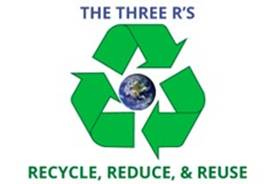My sense is a large group of people started a conspiracy theory in order to fight back against an imaginary enemy.
A smaller human population will may mean Earth can persist longer. Not only the human species, but also other animals, plants, the rest of the natural world of which we are only one species, one aspect of the ecosystem.
As many have pointed out, it will be a rather grim life to live in a world that is devastated, depleted of natural resources— including beauty. Our world’s beauty requires the existence of things that are not human or made by humans, or AI (non-carbon-based lifeforms that will likely exist in the near future). We do not want to leave a bleak world for future humans. And we’re talking about the near future. We personally may not be here but it’s arriving fast. Let’s leave a place worth existing in (we hope, even thriving in) for those who live on planet Earth in 75 years (2100).
We need to use sensible frameworks when presenting this argument to others. The spotted owl controversy is a classic example of failure by environmentalist groups. Let’s not repeat or rhyme history. Plastic straws bans were not an effective approach; this just made people angry and frustrated.
Plastic bag bans were not the correct way to address plastic waste, either. For example, we can certainly make similar bags out of bamboo (or other eco-friendly, biodegradable resources), corporations just need to be willing (or forced) to pony up the small expense to carry these in lieu of plastic. As we know, we were sold a plastic addiction. It’s not our responsibility to get out of it.
Corporations need to step up and fix the mess they made. Personal responsibility is important but we have to pick our battles and determine what is appropriate to put in the hands of everyday citizens/consumers.
If taking shorter showers or composting is part of your contribution that’s great. This will not be the answer for everyone.
We have to learn to distinguish priorities. What are the most significant problems that have the greatest impact and focus our energy appropriately.
At the level of personal responsibility, it’s not just a simple matter of the largest problems— it’s the largest problems that are also under our control. If we have no significant way to combat the problem, we should find another direction.
Gen Xers were sold the concept of recycling with a misguided emphasis on recycling. In hindsight, a better emphasis would have been reusing.
When I talk about speciesism (and protecting the natural world) above, I’m taking influence from Peter Singer’s philosophy rooted in his seminal text Animal Liberation. Singer continues to speak to similar issues as well as current events through a fairly consistent lens.
My understanding, based on William MacAskill’s writings (What We Owe The Future and Doing Good Better) and interviews, as well as fairly extensive research about Effective Altruism (before SBF/FTX gave it a bad name), includes the fact that the U.S. government historically spends less than 1% of our annual national budget specifically in the interest of serving future people. Future people are disenfranchised since they do not exist yet and, hence, cannot vote or wield any power in society.
What do you think it will take to convince others to get on board with saving the planet for future people?
One example is “Longtermism”





As far as I can see, those with a far more extreme "remedy" have gotten there first. They want to kill all life on earth more quickly so they can snap up all valuable resources and leave for space, where they imagine they can build a new planet for those wealthy enough to be included in the new community. I don't for a moment imagine it will work.
This post/essay is my attempt to be somewhat glass half-full. Unfortunately, I'm wired towards cynicism which is not great and not terribly effective (as studies have shown).
Anyhow, on the topic of cynicism -- this book (and interviews with the author) are excellent
(on my list of Best Nonfiction I read in 2024... which I'll put together and share soon)
Hope for Cynics: The Surprising Science of Human Goodness
by Jamil Zaki
https://www.amazon.com/Hope-Cynics-Surprising-Science-Goodness/dp/153874306X/